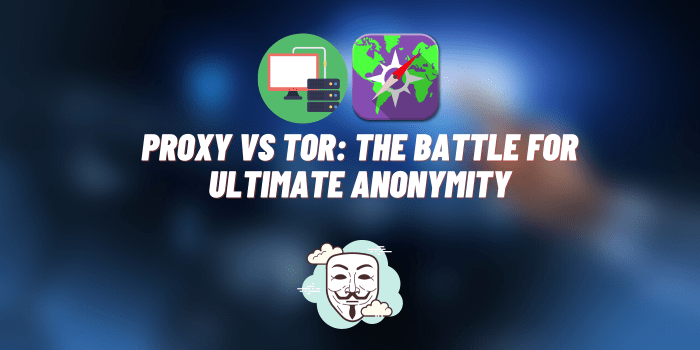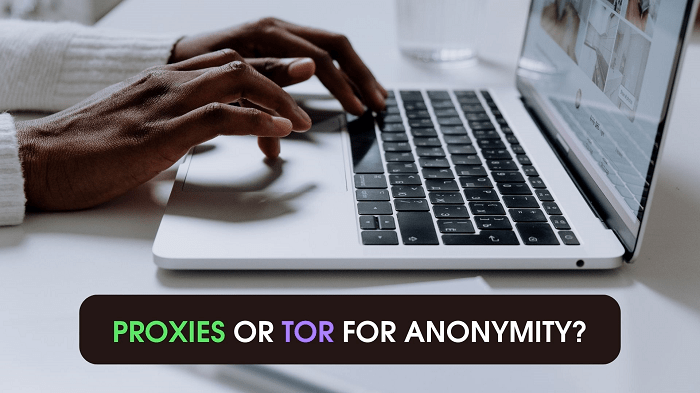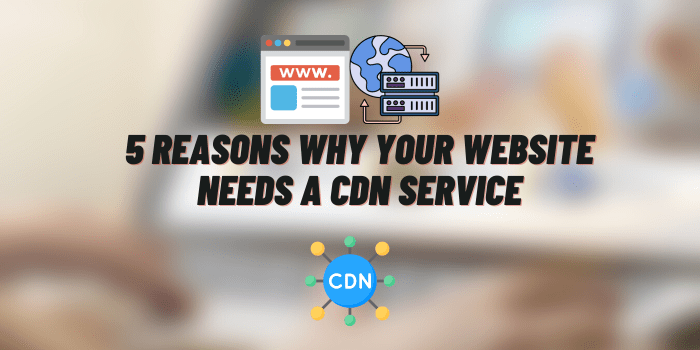Proxy Vs. TOR: The Battle for Ultimate Anonymity
Proxy servers have long been the go-to choice for individuals seeking anonymity. These intermediaries are a protective shield between you and the websites you visit, masking your IP address and routing your requests through their servers. On the other hand, TOR, the brainchild of privacy advocates and security experts, offers an entirely different level of anonymity.
In this showdown, we will dive deep into proxy servers and TOR, dissecting their strengths, weaknesses, and which is your best choice for your ventures on the web!
Proxy Servers: Technology Explained

Imagine a proxy server as an intermediary between you and the websites you visit on the internet. When you browse the web, your device sends requests to access websites. These requests usually contain information about your IP address, which can reveal your location and other details about you. Here’s where the proxy server comes into play.
Here’s a step-by-step breakdown:
- Request Intercept: You click on a link or type in a website’s URL, and your device sends a request to access that website.
- Proxy Server Intervention: The request doesn’t go directly to the website. Instead, it first goes to the proxy server you’ve set up or are using. This proxy server is a separate computer with its own IP address.
- Web Access: The proxy server, acting as your representative, sends the request to the target website on your behalf. To the website, it appears the request is coming from the proxy server’s IP address, not yours.
- Response Relay: The website sends back the requested web page or data to the proxy server, believing it’s responding to the proxy server’s request.
- Proxy to You: Finally, the proxy server forwards the website’s response to your device. You receive the web page just as you would if you had accessed it directly.
To be 100% sure your proxy works as intended, you can use this tested FREE proxy checker.
But… a proxy can be even better than that when it is a 5G one.
5G proxies provide faster and more stable connections, reducing latency and ensuring smooth data transfer. They also offer superior mobility, as they can maintain high-speed connectivity while on the move. Additionally, 5G proxies often have higher IP diversity, making them more suitable for…
- Web scraping;
- Online research;
- Bypassing geo-restrictions, etc.
Overall, 5G proxies are a significant upgrade, combining speed, reliability, and versatility for various online applications. And here is the list of the top 5G proxy solutions in case you only need the best ones!
What Is the TOR Browser in Its Turn?

The TOR (The Onion Router) Browser is a specialized web browser designed for ultimate online privacy and anonymity. Unlike regular browsers, TOR routes your data traffic through a vast network of volunteer-run servers, making it “unreadable” for anyone, including governments and hackers, to trace your online activities back to your location. Of course, that means your identity remains incognito.
Here’s how it works:
- Anonymous Routing: When you use the TOR Browser, your internet traffic is encrypted and relayed through multiple random nodes in the TOR network. Each node only knows the network’s previous and next points, not the data’s source or destination. This “onion routing” makes it nearly impossible to identify your real IP address or track your online behavior.
- Access to the Dark Web: TOR is famous for granting access to the “dark web,” a part of the internet not indexed by search engines and often associated with anonymous and sometimes illicit activities. While the dark web has legitimate uses, it must be used responsibly and ethically.
- Privacy and Censorship Circumvention: TOR helps users bypass internet censorship and access websites and content that might be blocked in certain countries or networks.
- Enhanced Privacy: The TOR Browser also blocks many common tracking mechanisms websites use to monitor your online behavior, giving you more privacy while browsing.
The Ultimate Proxy Vs. TOR Comparison
| Best in… | Proxy | TOR | Explanation |
| IP Masking | ✅ | ✅ | TOR routes your data through multiple nodes, each encrypting it before passing it on. This multi-layered approach ensures top-notch IP encryption. Yet, proxies are also good for that, especially when they have IP rotators. |
| Data Privacy | ✅ | Again, TOR takes the lead. While proxies can hide your IP, they might still log your activities (choose proxies with no-log policies to minimize this risk). TOR’s decentralized structure ensures that your data remains private. | |
| Bypassing restrictions
safely |
✅ | ✅ | Both proxies and TOR can bypass geo-restrictions effectively. They mask your real IP, making it appear like you’re accessing the web from a different location. |
| Simplicity | ✅ | Proxies win here. Setting up and using a proxy is generally more straightforward than configuring TOR. | |
| Legality | ✅ | Proxies are entirely legal. However, TOR’s association with the dark web has made it illegal in some countries. | |
| Costs | ✅ | While TOR is free, quality proxy services might come with a fee. However, the benefits often justify the costs. |
The Verdict

In conclusion, TOR and proxies are formidable tools in pursuing online privacy and anonymity, each with its own strengths. TOR excels in IP masking and encryption, making it a top choice for those requiring the utmost concealment.
However, proxies, while operating on a similar level, also offer unique advantages in terms of safety. They can be configured with security measures that TOR may lack, and they are 100% legal, while their opponent is banned here and there for… “bad image.”
The choice between TOR and proxies ultimately depends on your needs and risk tolerance. Both are powerful tools for safeguarding your online presence, offering different layers of protection in an ever-evolving digital landscape.
Happy browsing!






